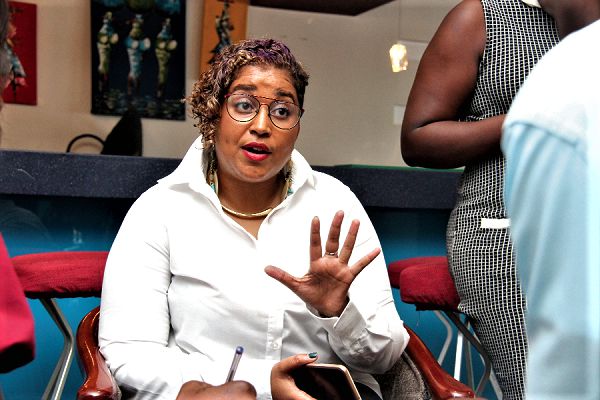
‘Current approach to women’s empowerment needs radical shift’
The Executive Director of African Women’s Development and Communication Network (FEMNET), Ms Memory Zonde Kachambwa, has called for a radical shift in the current approach to women’s empowerment.
She said the shift should be from dealing with the immediate hardships that women faced, to addressing structural barriers to women’s empowerment, such as challenging the fundamental structural and systematic causes of gender inequality.
Advertisement
Ms Kachambwa made the call at the opening of a four-day workshop organised by FEMNET in Accra yesterday.
The workshop is being held for women rights activists and organisations working to promote women’s rights.
The participants, drawn from various parts of Africa, have converged on Accra to discuss ways to engage with and influence macroeconomic policies and frameworks on the continent.
Participants
The workshop, which brought together about 40 participants from 27 African countries, is also aimed at building the capacities of women’s rights advocates and organisations, to have stronger macroeconomic analysis skills and also enable them to draw up strategic campaigns to shape discussions on critical macroeconomic policy issues to inform strategies for advocacy for women’s economic justice.
The FEMNET is a pan-African, membership-based network, based in Nairobi in Kenya, with over 700 members across 46 African countries.
Empowering women
A concept note presented at the workshop explained that out of the key drivers of discrimination against women, (ie, their lack of bodily autonomy), evidence showed that lack of economic autonomy had had the least traction in the past two decades continentally and, especially, at the national level.
As a result, women continued to be disproportionately affected by poverty, unemployment and inequality, while macroeconomic policies and frameworks had largely remained blind to this reality and had, therefore, not been redistributive. Such policies have not adequately created equal social and economic opportunities for women.
According to Ms Kachamba, empowering women with the needed skills and knowledge, was necessary to enhance equality and equity, since macroeconomic policies had been biased against women
Additionally, she said, women activists had had limited capacities to meaningfully participate in, and influence the macroeconomic policy, making them irresponsive to gender equality.
Changing the narrative
She further indicated that evidence showed that women had little information and knowledge on analysis of critical macroeconomic policy issues and processes in the region and the continent.
“It is about time women of all diversity, including those in the market and rural areas understood these fiscal policies, by simplifying them so that they will understand its impact on them and also make an input,” she said.
It is against that background, she said, that the FEMNET organised such workshops annually, to deepen the knowledge and skills of activists and movement leaders in how macroeconomic policies shaped the progress and development of women.
Investing in capacity building
The Head of Advocacy and Economic Justice Lead of FEMNET, Ms Crystal Simeoni, said economic policies formulation was the heart of political processes at the national, regional and global levels.
These policies, she said, were arguably essentially economic manifestations of a political belief system, which was run by governments.
Therefore, activists and civil society groups could make an input to influence and shape those policies.
Investment
Ms Simeoni said it was, therefore, important to invest in building the capacity of women to actively participate in the formulation of inclusive economic and development policies.
A Board Member of FEMNET West Africa, Dr Charity Binka, underscored the need for women to be empowered economically to help eliminate poverty.
Dr Binka, who is also the Executive Director for Women, Media and Change Organisation (WOMEC), said the meeting was critical to help build the capacities of women’s rights activists to design macroeconomic policies and frameworks to effect the change needed in society.




